Gritty Fantasy

by Garrett Calcaterra
gcalcaterra
Readers who were weaned on fantasy fiction in the 2000's could be excused for thinking that grittiness has always been a prerequisite for the genre. After all, morally ambiguous protagonists, dingy backdrops, and stories where there are consequences to violence—both physical and emotional—are commonplace motifs in fantasy now. That wasn't always the case.
Traditionally, fantasy authors glamorized the heroic deeds of their characters. Much like the mythology and fables the authors drew upon for inspiration, fantasy stories were peopled with larger-than-life heroes who were brave enough to pit themselves against true evil—and always came out on top. This is true in the traditions of both sword & sorcery and epic fantasy.
Robert E. Howard's Conan might be a barbarian, but he is driven by an unwavering moral compass and his physical prowess is unmatched. If you're an evil warlord or a necromancer, you're in for trouble. Likewise, Tolkien's Aragorn and even the unlikely heroes Bilbo and Frodo are unwaveringly good, and while they might doubt themselves at times (or be really lazy at others), that doesn't stop them from fighting and defeating Smaug and Sauron, the embodiments of evil.
With gritty fantasy, we entirely lose that dichotomy between good and evil. Our protagonists might have good intentions or aim to be heroic, but real life gets in the way, and in real life, things are complex.
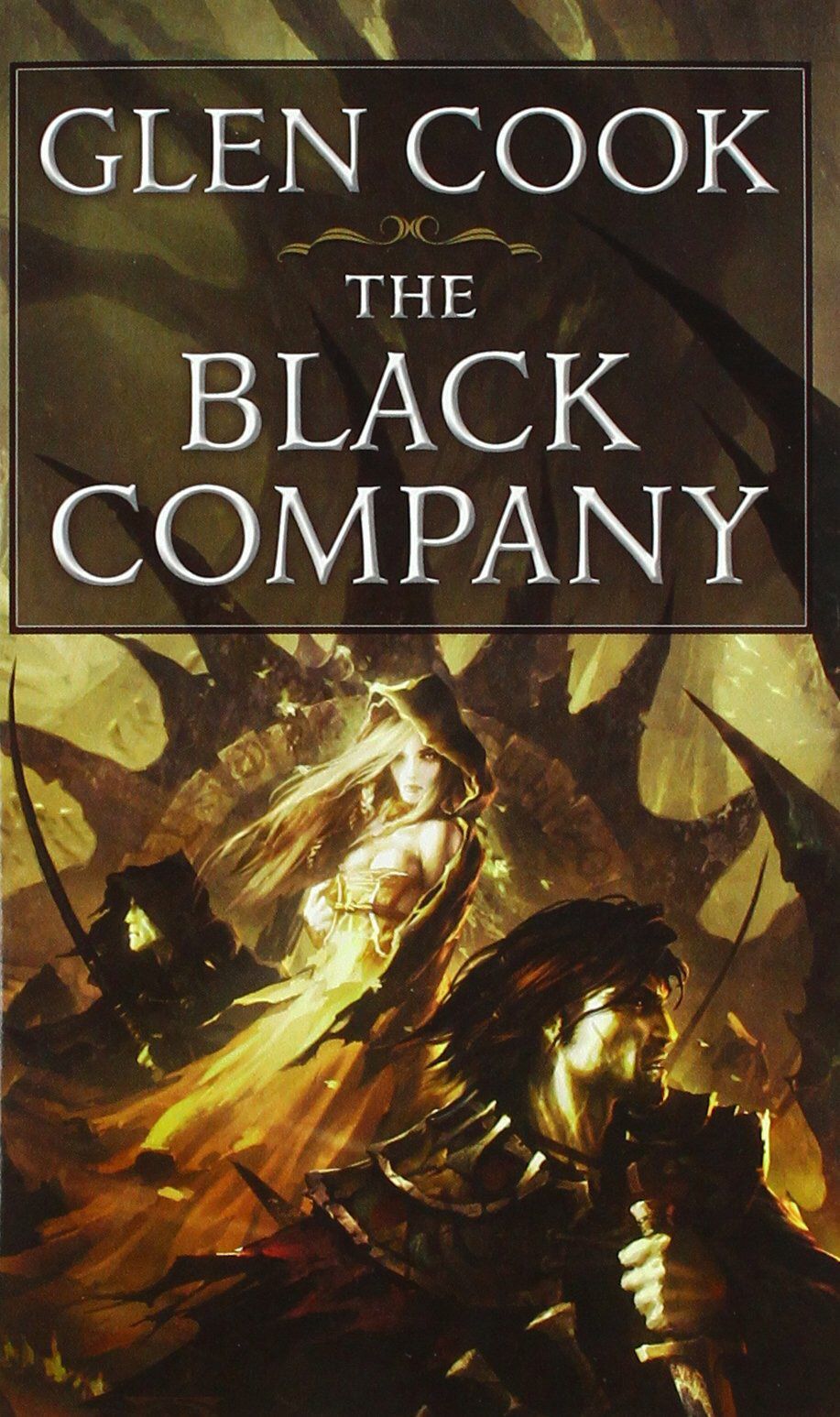
It's this underlying premise—the harshness of reality—that defines gritty fantasy.
While there is some overlap between gritty fantasy and grimdark, the two subgenres are not necessarily the same. Both subvert the romantic tropes of fantasy, but gritty fantasy does so by wallowing in the minutia of real life, whether it be the horrors of the battlefield, the horrors of disease and pestilence in a medieval city without modern sanitation, or the horrors of having to watch your child starve to death. Grimdark can do this too, but it subverts traditional fantasy by taking things a step further and purposely creating an aesthetic that is amoral, violent, and dystopian.
The setting in most gritty fantasy is, on the surface, the prototypical fantasy milieu: medieval kingdoms, quasi-medieval realms, or other variations of pre-industrial, agrarian societies. What sets gritty fantasy apart, though, is the moral ambiguity of governing institutions and those in power. Kings, queens, emperors, and lords are rarely benevolent, but neither are they ever truly evil. Instead, they're like political leaders in real life. They're flawed humans, driven by tradition, pride, greed, vengeance, or simple boredom. Most importantly, they tend to be out of touch, and therefore think nothing of levying more taxes or sending their vassals to war.
The life of commoners, meanwhile, is thankless and unrelenting. Farming is grueling work, and living in the city is rife with perils, dying of starvation or dysentery chief among them. Those who find too much success often gain the unwanted attention of cutthroats and thieves. Even someone in the enviable position of a knighted lord could easily starve to death after a harsh winter or when blight wipes out that year's crops. More likely, though, a knight will die on the battlefield when their king or queen doesn't deem them worthy of sending reinforcements.
Magic can and does appear in gritty fantasy, but unlike in traditional fantasy, it's usually not widely accepted as being normal or commonplace. Rather, magic tends to be occult, practiced by untrustworthy heathens. Alternatively, magic (as well as non-human creatures like elves, orcs, and dragons) has faded away and become forgotten, written off by people as superstitious nonsense. Again, the idea is that gritty fantasy creates a semblance of realism in the world, since the world is what ultimately defines the characters.
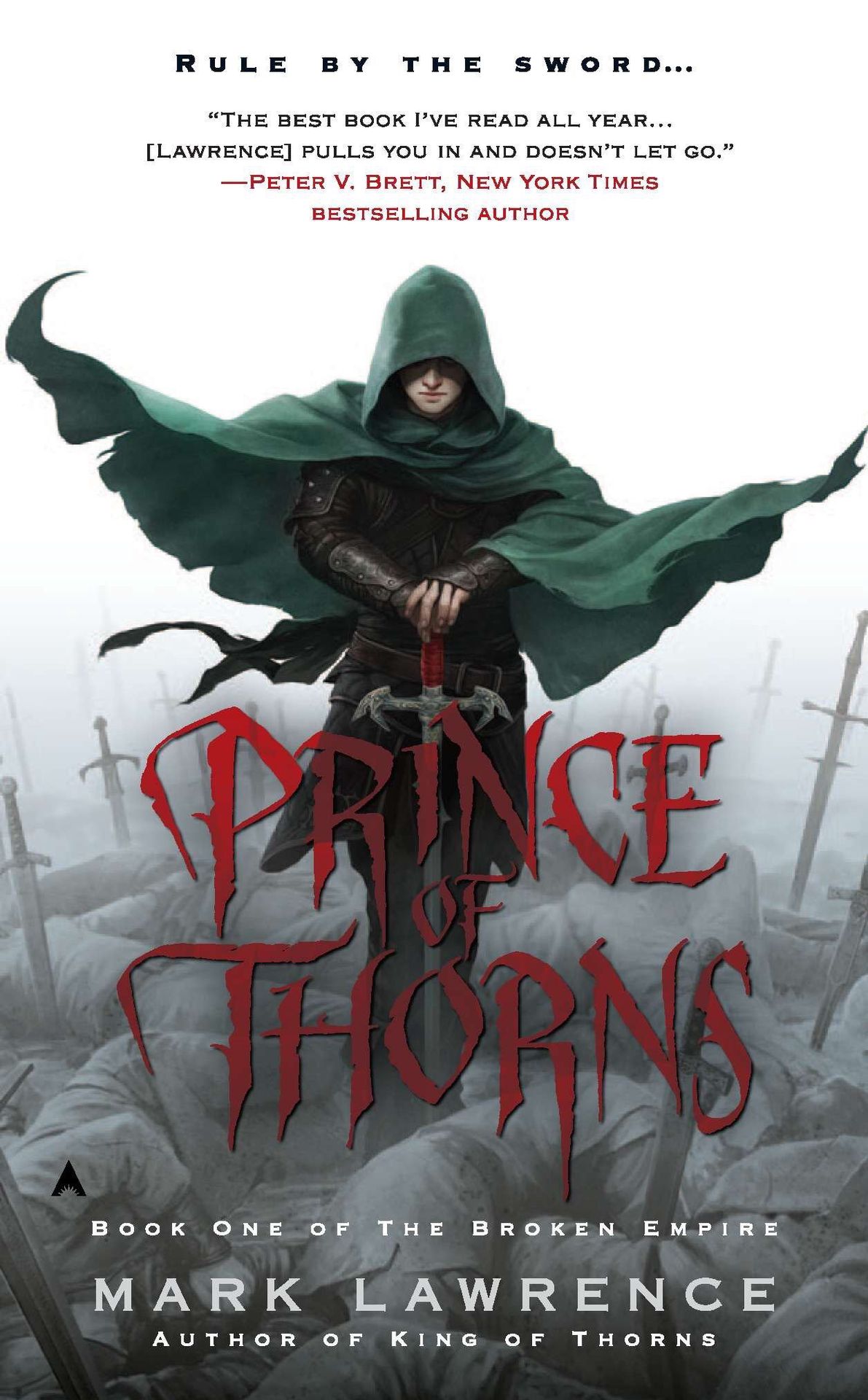
For their part, the protagonists in gritty fantasy are varied, ranging from heroic figures to anti-heroes. Likewise, the antagonists are usually morally ambiguous. Even when they do things that are bad, they're driven by otherwise good motives, whether it be honor, duty, or vengeance for the loss of a loved one. The one similarity between characters in gritty fiction is that they're complex, driven by often-conflicting motives. Even characters who are pure of heart aren't guaranteed success, once again because the world they live in is unsympathetic. Just ask Eddard Stark from A Game of Thrones.
George R.R. Martin's A Song of Ice and Fire series is, in fact, probably the most well-known example of gritty fantasy. A Game of Thrones wasn't the first, though, nor is it the most prototypical example. Some experts cite Michael Moorcock's Elric of Melnibone stories from the 1960's and 70's as being the progenitors of gritty fantasy, but while they were groundbreaking in introducing a morally ambiguous hero, they don't quite fit the mold of what we call modern gritty fantasy.
Rather, the honor for progenitor of the subgenre has to belong to Glen Cook's The Black Company (1984), and the subsequent novels in that series. Meanwhile, the book hailed as being the best example of what embodies gritty fantasy is Mark Lawrence's Prince of Thorns (2011) and the rest of his The Broken Empire series.
A basic list of must-read classics of the subgenre includes:
• The Black Company (1984), by Glen Cook
• Legend (1986), by David Gemmel
• Memory, Sorrow and Thorn trilogy (1988), by Tad Williams
• Black Sun Rising (1991), by Celia Friedman
• The Assassin's Apprentice (1995), by Robin Hobb
• A Game of Thrones (1996), by George R.R. Martin
• Gardens of the Moon (1999), by Steven Erikson
• The Lies of Locke Lamora (2006), by Scott Lynch
• The Blade Itself (2006), by Joe Abercrombie
• The Way of Shadows (2008), by Brent Weeks
• Prince of Thorns (2011), by Mark Lawrence
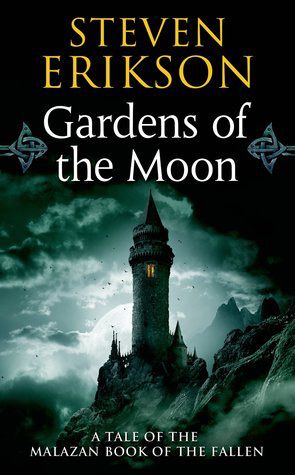
As an author, I find myself writing within the subgenre of gritty fantasy almost by instinct, largely because it allows me to create a marriage between the two genres I read and write in: fantasy and literary fiction. Essentially, gritty fantasy allows me write stories that are simultaneously character-driven and high-action adventures. Furthermore, gritty fantasy is a framework for writing stories that go beyond escapism and wish fulfillment on the part of the author and the readers. By looking at various issues through the lens of fantasy fiction—issues like social injustice, class warfare, colonialism, and unethical wars—just maybe we can come up with a way to better deal with them in our real world.

Example of Gritty Fantasy on Wattpad:
Dreamwielder by gcalcaterra
Synopsis:
In a world shrouded by soot and smoke, young Makarria has literally been forbidden to dream...
Legend has foretold the demise of Emperor Thedric Guderian at the hands of a sorceress with royal blood, so the Emperor has made it his legacy to stamp out all magic from the Sargothian Empire in favor of primitive coal fired smelters and steam powered machines. When Guderian's minions discover a Dreamwielder on a seaside farmstead, a chain of events forces Guderian's new threat—the young Makarria—to flee from her home and embark upon an epic journey where her path intertwines with that of Princess Taera, her headstrong brother, Prince Caile, and the northman Siegbjorn, who captains a night-flying airship.
Dogging their every step is the part-wolf, part-raven sorcerer, Wulfram, and Emperor Guderian, himself, a man who has the ability to stint magic and a vision to create a world where the laws of nature are beholden to men and machines. Only by learning to control the power she wields can Makarria save her newfound companions and stop the Emperor from irreversibly exterminating both the magic in humans and their bond with nature.
Excerpt:
After what seemed an interminably long time to Natarios Rhodas, Wulfram finally walked from the throng of captive woman to join Natarios.
"Find who you are looking for?" Natarios asked.
"No. There are a few women of minor ability among them, but they are of little concern to us."
The captain of the archers brushed past Natorios, keeping his eyes averted toward Wulfram's feet. "Shall I order their release, My Lord?"
"No," Wulfram said without hesitation. "Have your men kill them all."
The captain's mouth opened in protest, but the words choked back in his throat.
An emanation of danger prickled across Natarios's skin. He was no fool. He knew the captain and his men held no loyalty to Wulfram or the Emperor. They obeyed out of fear alone.
"Master," he said in a neutral tone, "there are children amongst the captives. Surely they pose no danger to us? Let us take them back to the dungeons, and then I'm sure the captain will have no reason to object to your commands. Isn't that right, Captain?"
"No," Wulfram growled before the captain could respond. "I said kill them all."
Wulfram's voice carried throughout the courtyard, and the archers and the captive women both heard his words. A handful of sobs and cries for help sprung from the crowd of women, and the archers shuffled uncomfortably as their eyes darted from one another to their captain to the panicked women. Already sweat had formed on the captain's brow, and he began to shake his head.
"I can't, I can't."
"Have your men take aim and shoot," Wulfram commanded.
"No," the commander replied, steeling what courage he had left and standing straight.
"Have it your way then," Wulfram said and he turned to face the women. His hand gesture was subtle, but within seconds the fire spread from the feet of the captive women to climb up their skirts. The women screamed, at first only startled, but their yells quickly turned to cries of pain as the flames enveloped them. A few of the women at the edge of the fray tried to bolt, but they managed to make it no more than a few steps before tripping to writhe, burning on the ground.
"No!" the captain yelled, unable to stand it any longer. He rushed forward to aid the women in whatever way he could, but before he could take two steps, Wulfram swiped at him with wolf-like quickness and he fell dead, his throat rent open with four mortal gashes.
The cacophony of screaming was near deafening now, and smoke billowed up from the burning women. Around the courtyard, the archers turned away in shock. Some of them vomited at the smell of smoke and cooking flesh.
"Let this be a lesson to all of you," Wulfram bellowed over the mayhem. "If you wish to show mercy to others then you will obey my orders without question."
Natarios kept his eyes steadily on the scene of fiery horror before him, but he turned his mind to other thoughts to distract himself. It was a skill he had taught himself long ago to cope with the unsettling acts he was forced to watch. And sometimes perpetrate.
The screams one by one ended, and the women quit struggling as they slowly succumbed to their painful deaths. One girl only, no more than twelve or thirteen years old, continued to struggle after all the others. She had thrown herself to the ground and tried rolling, but the flames were unrelenting, and eventually she too came to a stop as her long blond hair burned away to nothing, and all but her bones were consumed by the flames.

Inspirations:
Setting
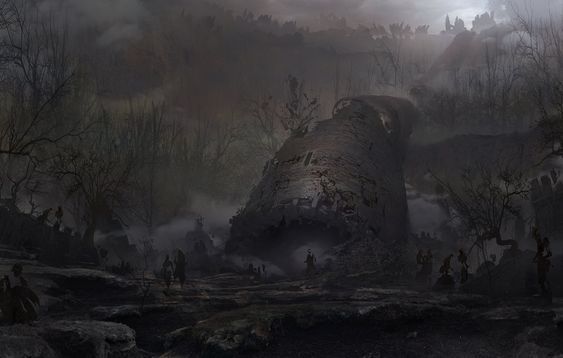
Characters
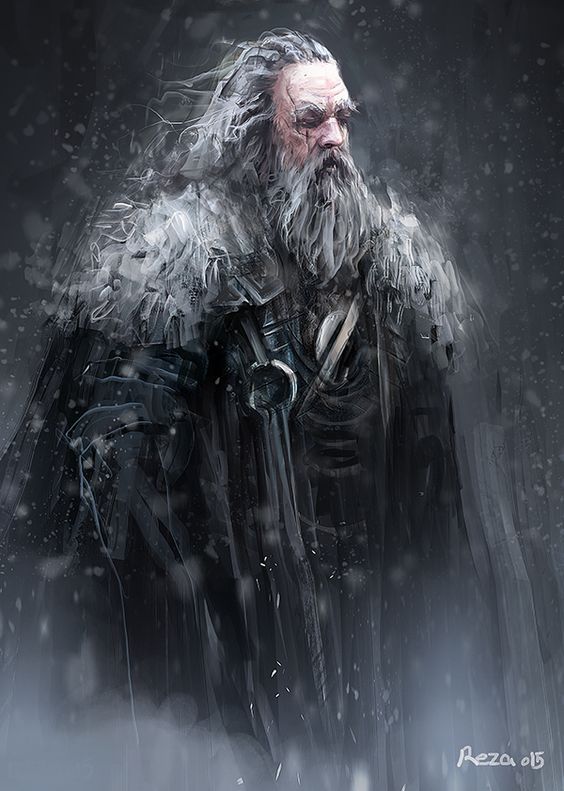
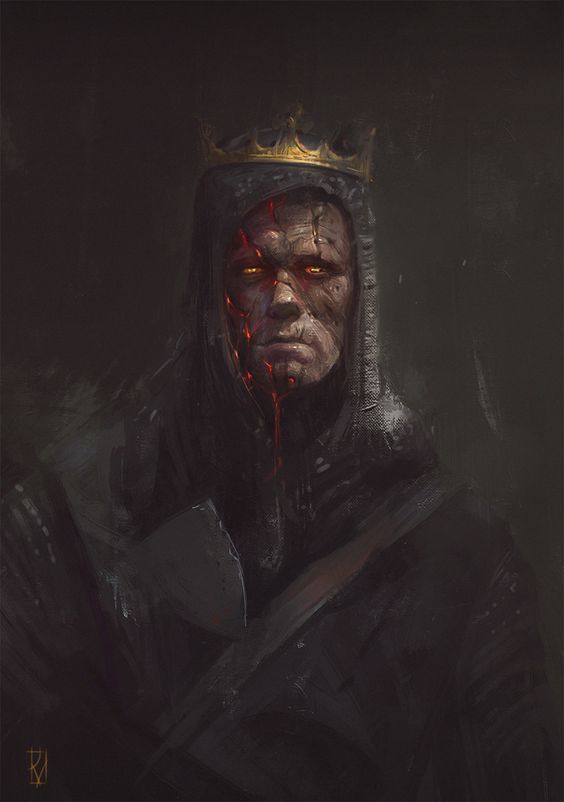

Music
https://youtu.be/ku8NgP6JUHc
Bạn đang đọc truyện trên: AzTruyen.Top